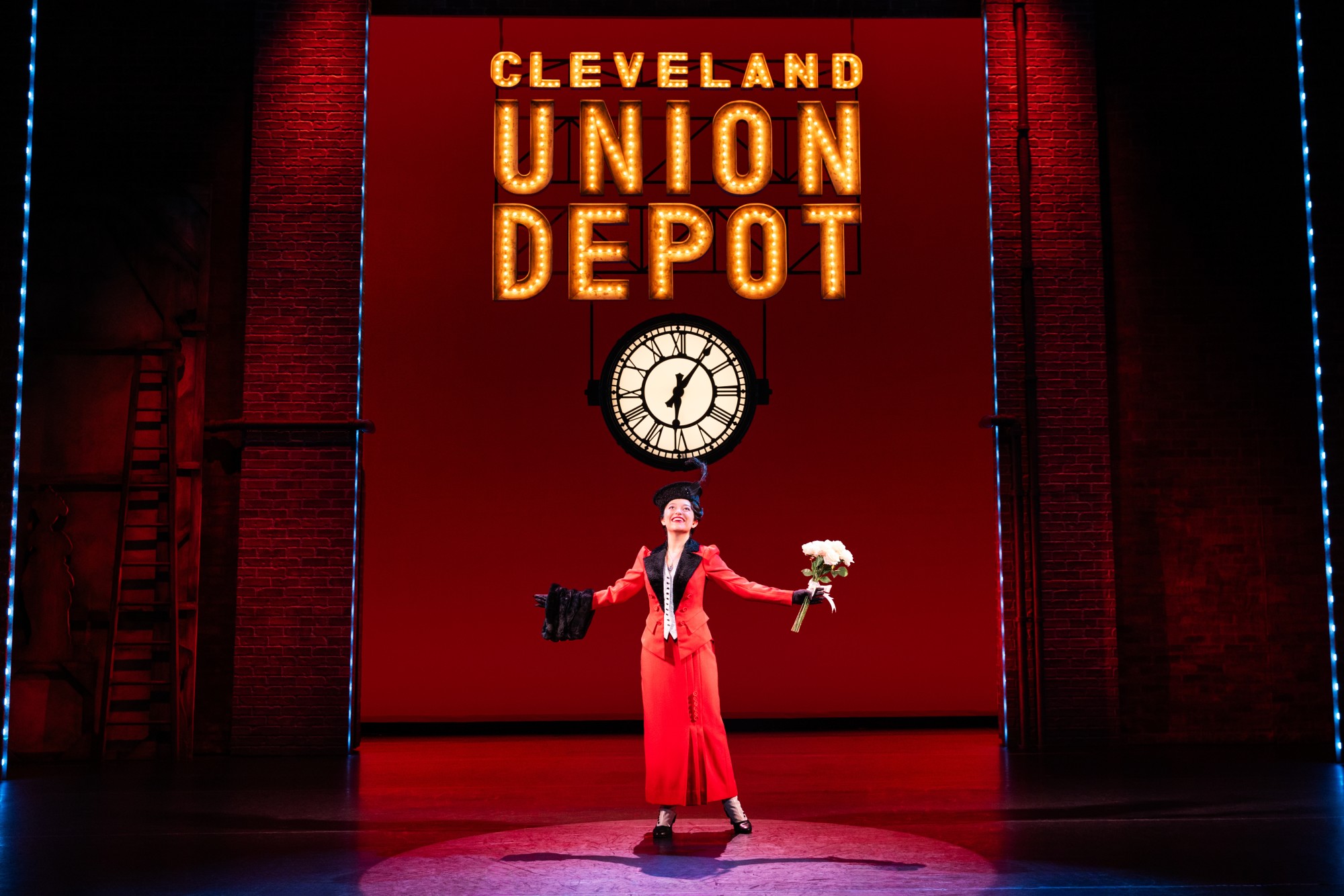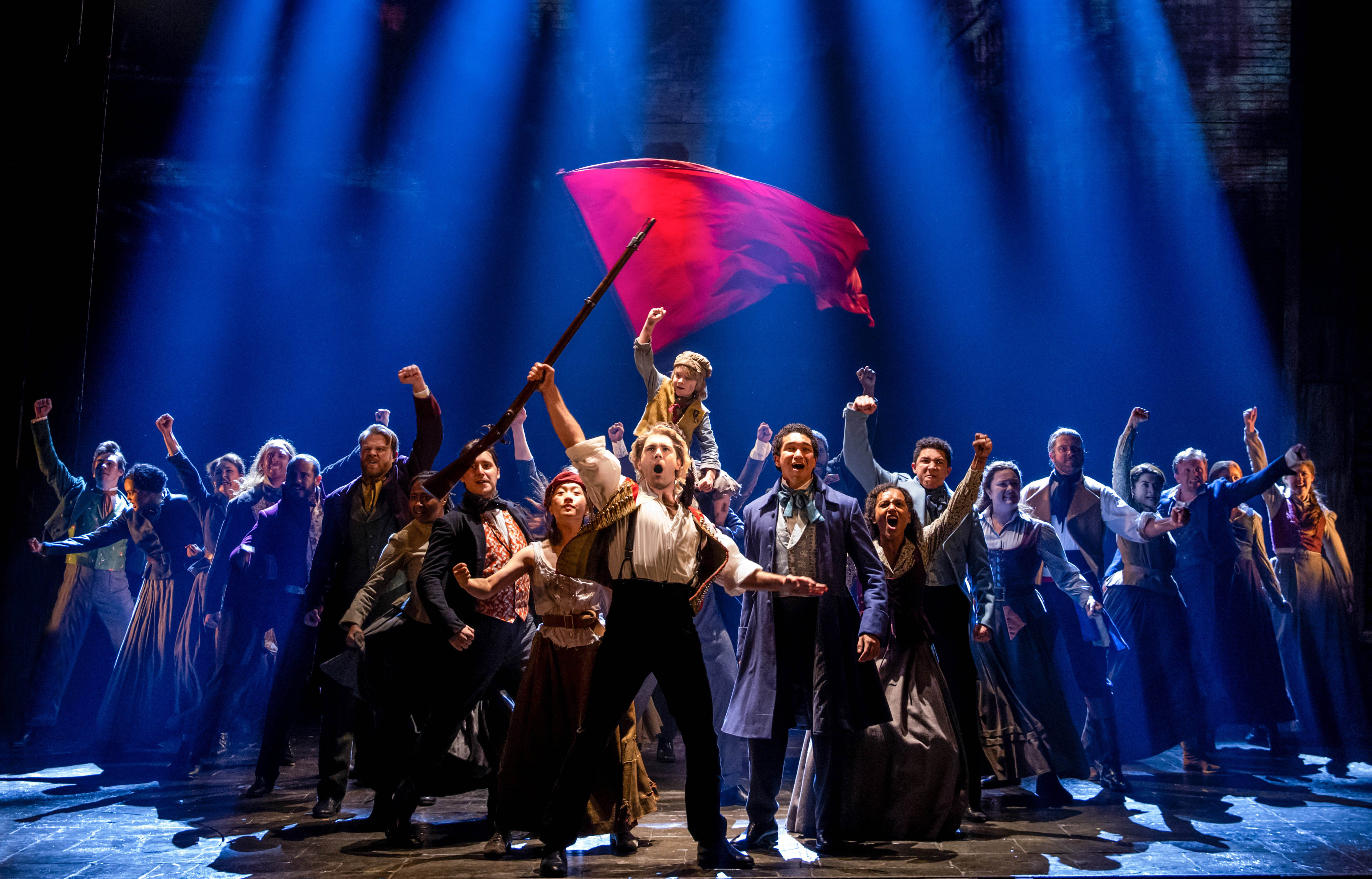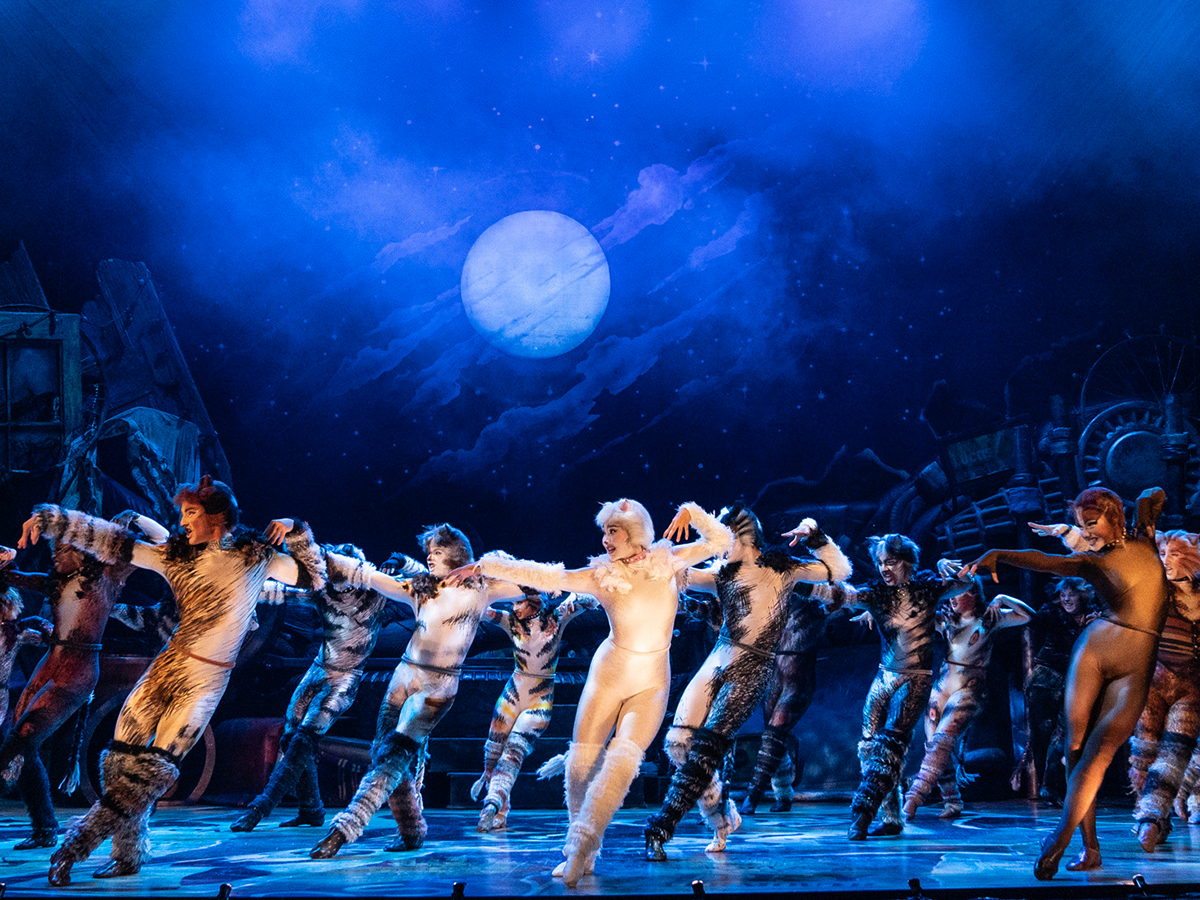Theater review: Katerina McCrimmon is ‘unrivaled’ as Fanny Brice in ‘Funny Girl’

Katerina McCrimmon stars as Fanny Brice in “Funny Girl.” The revival of the classic 1964 musical will run at the Ahmanson Theatre in Los Angeles through April 28. (Courtesy of Evan Zimmerman for MurphyMade)
“Funny Girl”
April 2-28
The Ahmanson Theatre
$40 - $199

By Victoria Munck
April 8, 2024 12:08 p.m.
This post was updated April 9 at 9:19 p.m.
Helmed by a supernova, “Funny Girl” is truly the greatest star.
Directed by Tony Award winner Michael Mayer, the dazzling revival of the classic ‘60s musical will light up Los Angeles’ Ahmanson Theatre through April 28 – though in a perfect world, it would never leave. Where its lackluster sets falter, glittering costumes and grandiose choreography maintain a visual marvel for the show’s duration. It is Katerina McCrimmon as Fanny Brice who ultimately carries the show to sublimity, bringing an unprecedented dynamism and vulnerability to one of theater’s best-written women.
“Funny Girl” tells the fictionalized life story of the real American comedian Fanny Brice following her rise to fame and its intersection with her rocky relationship. While a decades-old narrative, Fanny’s heartfelt journey still strikes a resounding chord for modern audiences. Viewers first meet her as an adult in a funeral-esque dress amid a wave of fog, setting up a mournful reflection on her past. As she quickly transitions to her first song, “Who Are You Now?,” McCrimmon’s smooth, stable voice effortlessly captures Fanny’s distress while inaugurating a performance of artistry and depth.
[Related: Theater review: ‘POTUS’ dishes up sharp comedic performances but ultimately dull satire]
After this number, audiences rewind to find young Fanny, pre-fame, struggling to hold a job as a chorus dancer. In this transition, the first of the production’s weak sets is uncurtained. A painted backdrop of a New York cityscape remains onstage for the majority of the first act, even though Fanny frequently travels between the interior of her home and the wide stage of her vaudeville theater within these scenes. To mark these shifts in location, scenic designer David Zinn opts to position mobile set pieces, such as a dining table or tap floor, in front of the backdrop to characterize each environment. While these furnishings do their job, they fail to fully immerse the audience in the setting, placing a hefty weight on the performers to convincingly hold the crowd’s attention.
Fortunately, McCrimmon is surrounded by an equally capable ensemble cast whose talents help distract from the varied flaws behind them. In Fanny’s Ziegfeld debut, “His Love Makes Me Beautiful,” the surrounding chorus members quite literally shine in tall, diamond headpieces and bedazzled formal wear. As they gracefully move with crisp line work and support McCrimmon with delicate harmonies, they construct the perfectly juxtaposed foundation for Fanny’s comedic lead.
In fact, all of Fanny’s introductory performances make her meteoric leap to stardom increasingly believable. “I’m the Greatest Star” specifically does the best job of catalyzing her character arc by establishing the magnitude of her passion in mere minutes. Most importantly, however, the solo simultaneously establishes both Fanny and McCrimmon as unrivaled entertainers in their fields. Whether climbing a ladder or hopping off a piano, McCrimmon maintains consistently powerful belts throughout the song, and her side-splitting humor is woven within the finest details of her act.
Consequently, Fanny’s talent soon catches the attention of Nick Arnstein (Stephen Mark Lukas), a sophisticated gambler who instantly sweeps the showgirl off her feet. To the skill of Lukas, Nick’s charm permeates the theater with every sultry step, even when audiences understand they should be slightly wary of him. Unfortunately, the facade cracks slightly when he hits his first note. Though not notably bad, Lukas’ tone occasionally falls flat – and when up against the pure brilliance of McCrimmon in duets such as “I Want To Be Seen With You,” it becomes far easier to spot the weakest link.
Nonetheless, the pair’s chemistry is intensely palpable, and the gradual development of the relationship effectively captivates viewers. The number “You Are Woman, I Am Man” defines their compatibility with delightful energy as Nick’s romantic advances leave Fanny progressively flustered. Once again diverting attention from the mediocre set behind them, Lukas and McCrimmon employ masterful physical comedy to convey their growing sexual tension before concluding with a passionate kiss. When the couple’s marriage and pregnancy are later revealed in act two’s “Sadie, Sadie,” their tender love transcends the theater in a way that seems everlasting.
But it does not take long for an end to approach. As Nick falls into financial trouble, his fear and frustration unveil a mean interior, startling audiences when he abruptly snaps at Fanny for the first time. In a chilling performance, Lukas gently tones down the charm that first characterized his portrayal and instead leans into the sharper, conniving depths of Nick. In contrast, Fanny continues to express an overwhelming love for her husband, sacrificing thousands of dollars to support his investments without hesitation. Even when Nick is arrested for embezzlement, Fanny insists upon her unending passion in the ballad “The Music That Makes Me Dance,” which McCrimmon sings with prolonged, saddening notes.
[Related: Theater Review: The musical ‘Les Misérables’ offers stellar displays and impassioned vocals]
As the musical concludes, the couple’s marriage ultimately collapses, presenting Fanny with the most affliction audiences have witnessed to this point. McCrimmon’s nuanced performance blends with the production’s cathartic script to depict a painfully realistic image of womanhood and heartbreak. Despite reworking her entire life for her criminal and comparably substandard husband, Fanny still somehow takes the blame, paradoxically convincing herself she didn’t do enough for Nick while also making him feel small. Her soft delivery of the line “Am I giving too little by my loving you too much?” is heart-wrenching, particularly when viewers recall the compassion she refused to cease throughout their tumultuous relationship.
While Fanny’s emotional nadir is tragic, it makes her triumphant bout of confidence in the show’s finale all the more rewarding. In her very last moment onstage, she divorces Nick and resolves to start fresh in the theater, reprising bold lines from the iconic “Don’t Rain on My Parade” with more authority than before. Ending with a commanding belt, McCrimmon’s show-stopping energy continues to buzz through the audience long after the curtain falls, breathing new life into a story older than herself.
In theater’s garden, “Funny Girl” just might be the rose of sheer perfection.






